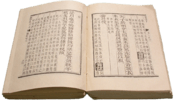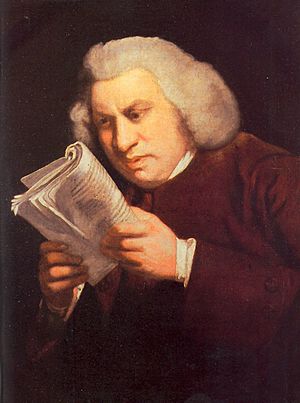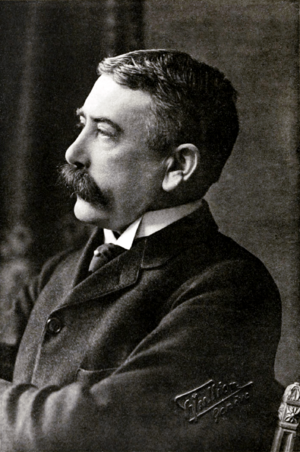Literary criticism facts for kids
| Literature |
|---|
 |
| Major forms |
| Genres |
| Media |
|
| Techniques |
| History and lists |
|
| Discussion |
|
Literary criticism is all about studying, understanding, and judging books, poems, plays, and other written works. It's like being a detective for stories, trying to figure out what they mean, how they're put together, and why they affect us the way they do. Sometimes, literary criticism is also called literary studies.
Modern literary criticism often uses ideas from literary theory. This is like a set of big ideas or rules about what literature is for and how it works. Even though they are connected, literary critics don't always have to be theorists.
Literary critics often share their thoughts in essays or books. Teachers who study literature at universities are academic critics. They write for special magazines called academic journals. Other popular critics write reviews for well-known magazines and newspapers. These include The Times Literary Supplement, The New York Times Book Review, and The New Yorker.
Contents
Exploring the History of Literary Criticism
People have been thinking and writing about literature for a very long time. Let's look at how literary criticism has changed over the years.
Early Ideas: Classical and Medieval Times
Literary criticism started way back in ancient times. About 2,400 years ago, a Greek thinker named Aristotle wrote a famous book called Poetics. In it, he described different types of stories and shared his thoughts on plays of his time. He came up with important ideas like mimesis (imitation) and catharsis (releasing strong emotions). Another Greek philosopher, Plato, also wrote about poetry, though he often criticized it.
In ancient India, the Natya Shastra also included ideas about plays and literature. Later, during the medieval period, many critics focused on religious books. They tried to understand the deep meanings in texts like the Bible or the Quran. This way of studying religious texts also influenced how people looked at other kinds of writing.
In the 9th century, Arabic writers like Al-Jahiz and Abdullah ibn al-Mu'tazz also wrote about Arabic literature and Arabic poetry.
The Renaissance: A New Beginning
The Renaissance (around the 14th to 17th centuries) was a time of great rebirth in Europe. People rediscovered old Greek and Roman ideas. Literary criticism during this time brought back classical ideas about how stories should be put together. They believed literature was very important to culture. Aristotle's Poetics was a huge influence again. A critic named Lodovico Castelvetro wrote important comments on Aristotle's work in 1570.
The Enlightenment: Reading for Everyone

During the Enlightenment (1700s), more and more people learned to read. Reading was no longer just for the rich or for studying religion; it became a way to have fun! With more readers and faster printing, literary criticism also grew. Critics started writing about books in magazines and newspapers. They often looked for clear and precise writing. Sometimes, they even judged authors based on their religious beliefs.
Not everyone liked all the new books. For example, Jonathan Swift's book Gulliver's Travels was criticized by some. One critic even called the part about the Yahoos "detestable."
The 19th Century: Romantic Ideas
The Romantic movement in the early 1800s brought new ideas to literary criticism. Romantics believed that literature didn't always have to be about perfect or beautiful things. They thought that even everyday subjects could be made special and powerful through writing. In Germany, Romantic thinkers valued a kind of "wit" or "humor" in literature. Later in the 1800s, writers like Matthew Arnold became famous more for their literary criticism than for their own stories or poems.
The New Criticism: Focusing on the Text Itself
In the early 1900s, a new way of looking at literature became popular, especially in Britain and the United States. It was called the New Criticism. This approach focused on "close reading" texts. This means carefully looking at the words on the page, the structure, and the style of the writing. Critics tried not to guess what the author intended or what the author's life was like. They believed the meaning was all in the text itself. This idea of paying close attention to the words is still important today.
The Rise of Literary Theory
After the 1960s, university literature departments started to use more philosophical ideas in their criticism. This was influenced by ideas like structuralism and post-structuralism. These "theories" helped critics think about how language works, how meaning is made, and how culture shapes stories.

In 1957, Northrop Frye wrote an important book called Anatomy of Criticism. He pointed out that some critics might judge books based on their own beliefs or ideologies.
Today's Literary Criticism
Today, literary criticism uses many different approaches. Critics can choose from a wide range of methods. Some still focus on traditional literature, like the classic books. Others are interested in new kinds of texts, like women's literature or even popular works like comic books.
Some critics study how literature connects to the environment (called ecocriticism). Others look at how human nature, shaped by evolutionary science, appears in stories. Many literary critics also study film criticism or other media studies. They might also explore intellectual history or use ideas from social history to understand literature better.
Important Books and Ideas in Literary Criticism
Many thinkers throughout history have written important books that shaped how we understand literature. Here are some of them:
Classical and Medieval Periods
- Aristotle: Poetics
- Plato: Republic
- Horace: Art of Poetry
- Longinus: On the Sublime
- St. Augustine: On Christian Doctrine
- Dante: The Banquet
- Bharata Muni: Natya Shastra
The Renaissance Period
- Lodovico Castelvetro: The Poetics of Aristotle Translated and Explained
- Philip Sidney: An Apology for Poetry
The Enlightenment Period
- John Dryden: An Essay of Dramatic Poesy
- Alexander Pope: An Essay on Criticism
- Samuel Johnson: Preface to Shakespeare
- Immanuel Kant: Critique of Judgment
- Mary Wollstonecraft: A Vindication of the Rights of Woman
The 19th Century
- William Wordsworth: Preface to the Second Edition of Lyrical Ballads
- Samuel Taylor Coleridge: Biographia Literaria
- Percy Bysshe Shelley: A Defence of Poetry
- Matthew Arnold: The Function of Criticism at the Present Time
- Oscar Wilde: The Decay of Lying
- Leo Tolstoy: What is Art?
The 20th Century
- Ferdinand de Saussure: Course in General Linguistics
- T. S. Eliot: Tradition and the Individual Talent
- Virginia Woolf: A Room of One's Own
- Northrop Frye: Anatomy of Criticism
- Roland Barthes: The Death of the Author
- Michel Foucault: What Is an Author?
- Edward Said: The World, the Text, and the Critic
See also
 In Spanish: Crítica literaria para niños
In Spanish: Crítica literaria para niños
- Book review
- Critical lens
- History of the book
- Literary critics
- Literary translation
- Philosophy and literature
- Social criticism
 | Delilah Pierce |
 | Gordon Parks |
 | Augusta Savage |
 | Charles Ethan Porter |

